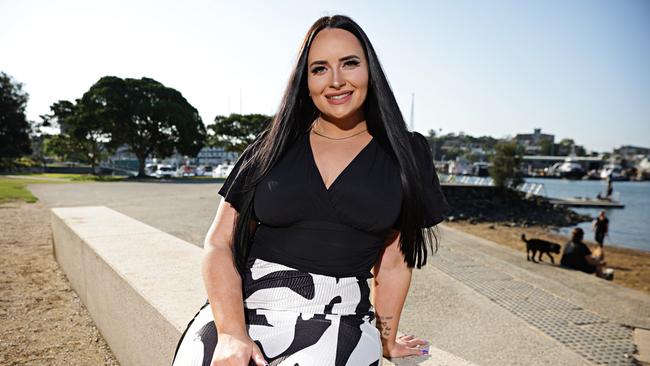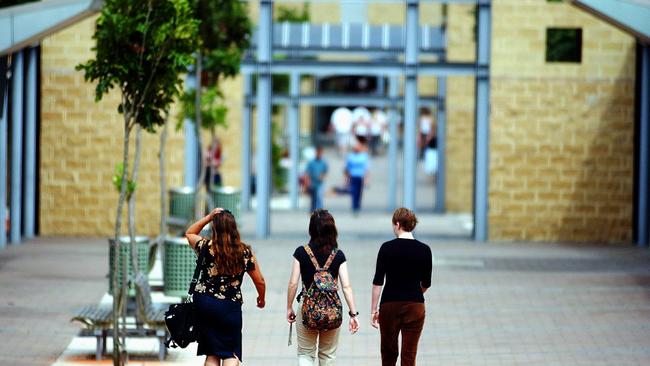University researchers look at new ways to manage common eating disorder
Binge eating is the most common eating disorder in Australia – but it’s often the most judged. Researchers are now looking for new ways to help sufferers.
NSW
Don't miss out on the headlines from NSW. Followed categories will be added to My News.
Since she was a young teenager, Hanna would use food as a way to deal with her emotions. Through bouts of depression and stress, she would binge until she couldn’t remember what she’d eaten.
After she lost her brother in 2017, her depression worsened and so did her bingeing. Food became a coping mechanism and a way to control her emotions. It gave her a quick high, but the comedown was “awful”, marred with feelings of shame, sickness and guilt.
“I just turned to food because food was always there. Friends come and go, you can go and do activities to distract yourself, but you can access food so easily.”
“Every day was a struggle, I couldn’t control my eating disorder because of how depressed I was,” she said.

It wasn’t until Hanna got older that she understood she was suffering from an eating disorder – and one that affects thousands of Australian men and women.
“I didn’t really know what (a binge eating disorder) was at the time, because I feel like in society, the biggest eating disorder that is spoken about and researched about is anorexia,” she said.
In 2020 she began her journey to recovery, which involved speaking openly about her battles with the disorder and raising awareness about it.
“I had never heard anyone really talk about it, so I wanted to start that conversation,” Hanna said.
“I’m really proud of how far I’ve come in the past five years.”
Binge eating is Australia’s most common eating disorder, affecting 47 per cent of people with eating disorders – compared to three per cent of people with anorexia nervosa and 12 per cent with bulimia.
However – it was only recognised as a mental health condition in 2013, and is sometimes still confused with longer understood disorders such as bulimia, according to The Butterfly Foundation’s Natalie Spicer.
“Cultural perceptions and stereotypes of bingeing as a lack of will power and something that only occurs in people in larger bodies can often lead to misdiagnosis, with some people falling through the gaps for many years,” she said.

“It can also lead to problematic treatment recommendations, such as diet or weight loss plans that can in fact perpetuate the disorder.”
With serious health risks like heart disease and stroke linked to eating disorders, a group of researchers from The University of Newcastle in combination with the Hunter Medical Research Institute and Heart Foundation, are taking a closer look at addictive eating behaviours, and how they can be best managed and treated.
PHD candidate Mark Leary, who is also an accredited practising dietitian, said his research has so far shown that programs to help people suffering from addictive overeating are often limited.
“Health professionals are often asked about assistance or help for food addiction, however management programs are limited, they are often based from self-help groups or individuals are directed to weight loss advice,” he said.
“However often these aren’t useful in the long term as more comprehensive behaviour change is required.”
Mr Leary and the research team are currently recruiting men and women aged between 18 to 35 years from NSW to participate in the TRACE Program – which is investigating whether targeted coping skills are effective in managing addictive eating behaviours and improving overall heart health.
To learn more visit: https://redcap.link/TRACE_young_adults
If you’re impacted by an eating disorder or body image concern, or know someone who is,
contact Butterfly’s National Helpline on 1800 ED HOPE (1800 33 4673).
Got a news tip? Email weekendtele@news.com.au





